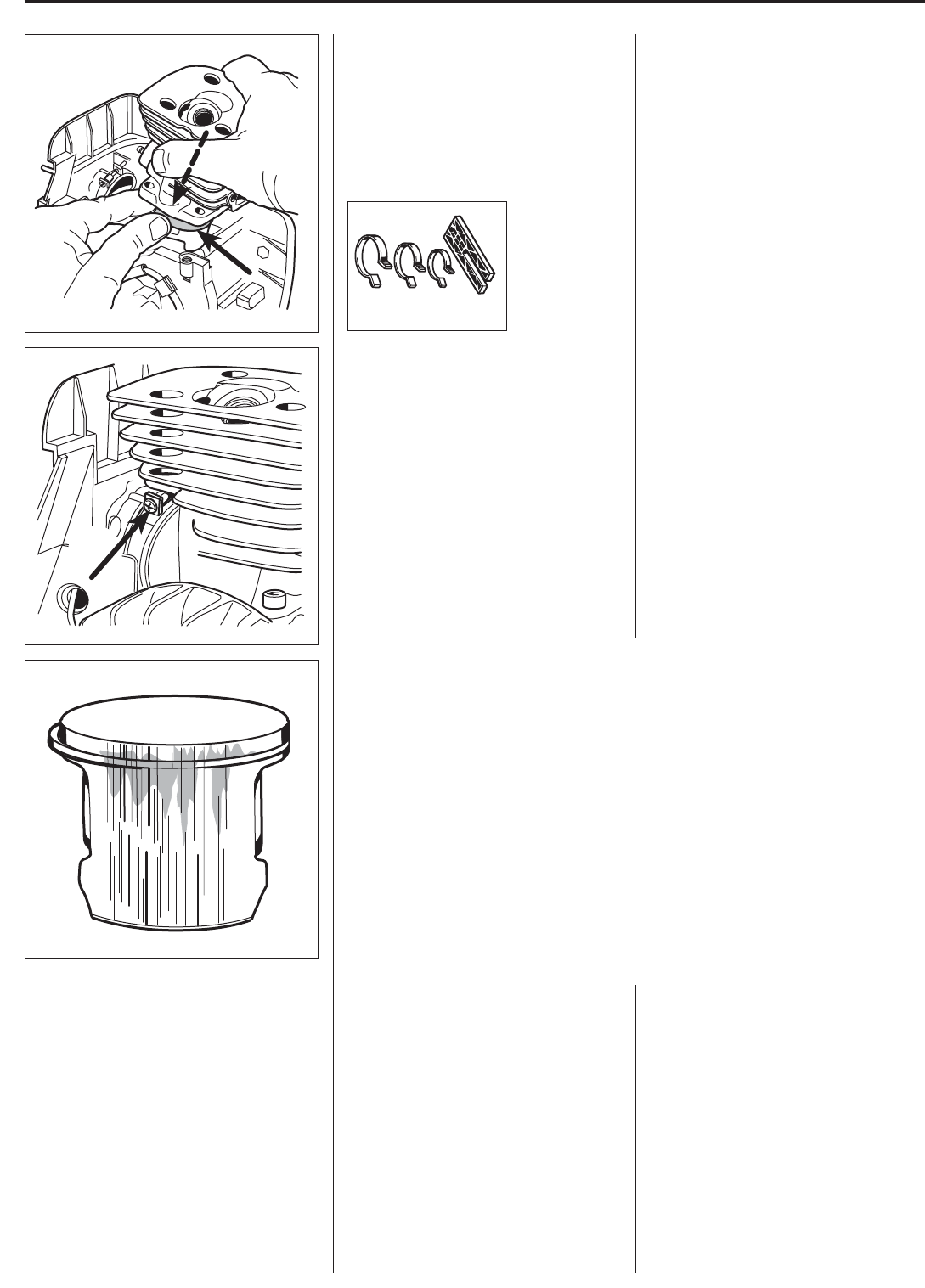
45
6
502 50 70-01
Cylinder and piston
Use a new gasket and fit the cylinder.
Make sure that the inlet manifold is
correctly connected to the sleeve
coupling on the cylinder and that the
impulse nipple sits right.
Place a new cylinder pedestal gasket
on the cylinder.
Lubricate the piston and the inlet
manifold on the cylinder with a few
drops of engine oil and fit the cylinder
using the smallest piston ring compres-
sor in assembly kit 502 50 70-01.
Make sure that the inlet manifold is
correctly connected to the sleeve
coupling on the cylinder and that the
impulse nipple sits right.
Screw the cylinder into place and
tighten the clamp around the inlet
manifold.
Assemble the other parts.
Screw the cylinder into place.
Tighten the clamp around the inlet
manifold.
Assemble the carburettor and the other
parts in the reverse order as set out for
dismantling.
Analysis and actions
Experience tells us that piston or cylinder failure due to manufacturing errors are
extremely rare.
The reason is usually due to other factors, which is evident from the following.
Note the reasons for the breakdown, repair the damage and take the actions
required to prevent the same thing happening again.
Small to medium size scores primarily in
the middle of the exhaust port.
Insufficient lubrication
The piston has small to medium size score marks usually in front of the exhaust
port. In extreme cases heat development can be so great that material from the
piston smears along the piston skirt and even in the cylinder bore.
Generally the piston ring is undamaged and moves freely in the ring groove
There can also be scores on the inlet side of the piston.
Cause:
• Incorrect carburettor setting.
Recommended max. speed ex-
ceeded.
• Incorrect oil mixture in the fuel.
• Too low octane fuel.
Action:
Check and change the carburettor
setting.
Change the fuel.
Change to a higher octane petrol.


















